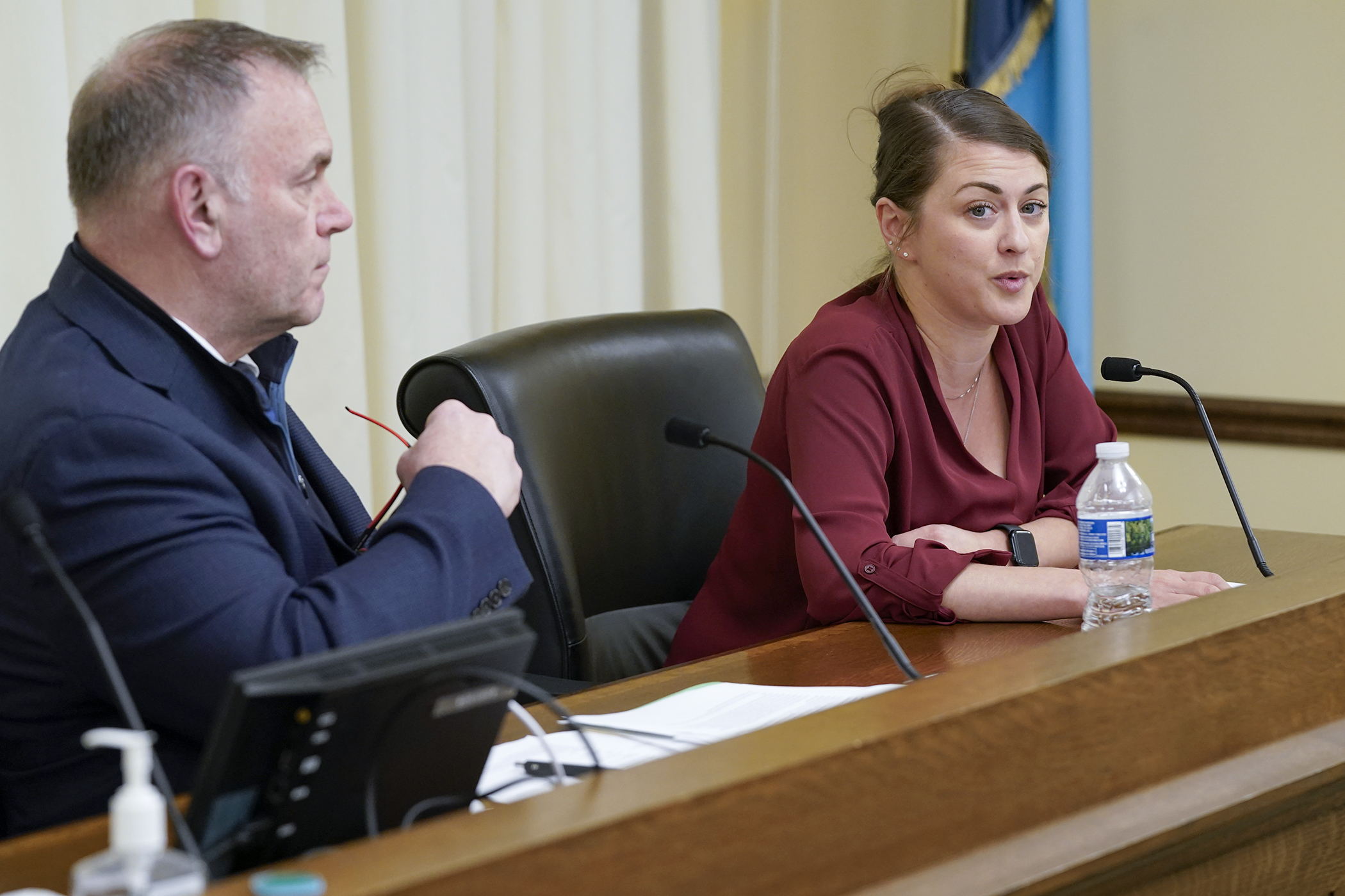Health panel OKs bill allowing patients to proactively refuse opioids

When Rep. Dave Baker (R-Willmar), his wife and their son, Dan, met with a specialist about Dan’s upcoming surgery for back pain, they explained that Dan had struggled with opioids and hoped there would be a way to avoid that class of painkillers. Baker remembers clearly the doctor responded with a “horrible grin” and gave the impression that the Bakers didn’t know what they were talking about.
He also remembers it was 15 years ago, one year before his son died of an opioid overdose.
Physicians’ awareness and caution around opioid use has increased dramatically since then, but there’s a reason the powerful painkillers are used in medical settings, Baker said. He is sponsoring legislation that would give patients the chance to clearly say: “I do not want to take an opioid.”
The bill, HF1379, would authorize the use of voluntary non-opioid directives, which would allow patients to proactively inform their health care provider they do not wish to receive opioids. The directive would be analogous to do-not-resuscitate directives.
It’s one small step to make sure people who are in a journey of sobriety can avoid these powerful drugs, Baker said. The bill, as amended, was approved by the House Health Finance and Policy Committee Monday and was sent to House Judiciary Finance and Civil Law Committee.
Before hearing the bill, members of the committee heard state Addiction and Recovery Director Jeremy Drucker talk about substance use and the state’s opioid response.
Opioid deaths skyrocketed in 2020, Drucker said, but decreased in 2023 and 2024. Nonfatal overdoses are not going down at the same rate. “We’ve gotten more adept at minimizing the worst-case outcome in an overdose, which is a death,” Drucker said.
In 2023, 70% of overdose deaths in Minnesota involved at least one opioid and fentanyl was involved in more than 90% of opioid overdose deaths.
Supporters say HF1379 would offer myriad benefits. Using the directive as created and hosted on the Health Department website would:
- reduce opioid misuse and addiction;
- improve communication between patients and providers;
- provide a standardized, recognizable form to ensure statewide consistency; and
- protect health care providers while offering enough flexibility for emergencies.
"HF1379 represents a commonsense approach designed to minimize unnecessary exposure to narcotic pain medications and ensure that patients have a choice in managing their pain" wrote Voices for Non-Opioid Choices Executive Director Chris Fox.
Related Articles
Search Session Daily
Advanced Search OptionsPriority Dailies
Speaker Emerita Melissa Hortman, husband killed in attack
By HPIS Staff House Speaker Emerita Melissa Hortman (DFL-Brooklyn Park) and her husband, Mark, were fatally shot in their home early Saturday morning.
Gov. Tim Walz announced the news dur...
House Speaker Emerita Melissa Hortman (DFL-Brooklyn Park) and her husband, Mark, were fatally shot in their home early Saturday morning.
Gov. Tim Walz announced the news dur...
Lawmakers deliver budget bills to governor's desk in one-day special session
By Mike Cook About that talk of needing all 21 hours left in a legislative day to complete a special session?
House members were more than up to the challenge Monday. Beginning at 10 a.m...
About that talk of needing all 21 hours left in a legislative day to complete a special session?
House members were more than up to the challenge Monday. Beginning at 10 a.m...